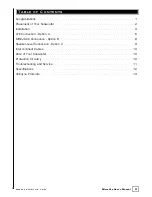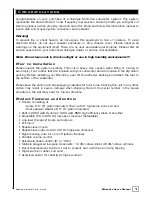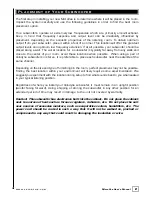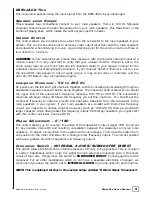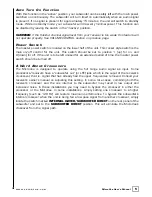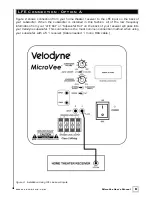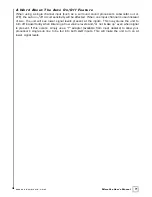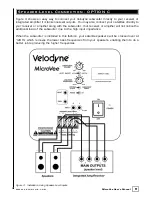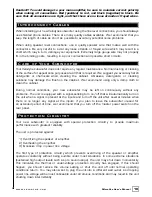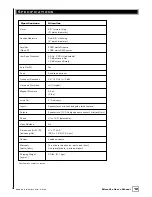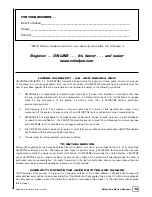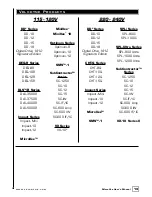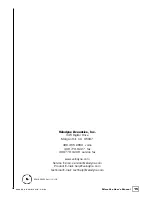
Placement of Your Subwoofer
2
.
w w w . v e l o d y n e . c o m
MicroVee User’s Manual
The first step in installing your new MicroVee is to determine where it will be placed in the room.
Unpack the system carefully and use the following guidelines in order to find the best room
placement option.
True subwoofers operate at extremely low frequencies which are primarily omni-directional.
Keep in mind that frequency response and output level can be drastically influenced by
placement, depending on the acoustic properties of the listening room. To obtain optimum
output from your subwoofer, place it within a foot of a corner. This location will offer the greatest
output levels and optimum low frequency extension. If at all possible, your subwoofer should be
placed along a wall. The worst location for a subwoofer is typically far away from any walls and
close to the center of your room. Avoid these locations when possible. When using a pair of
Velodyne subwoofers in stereo, it is preferable to place each subwoofer near the satellite of the
same channel.
Depending on the size and type of furnishings in the room, perfect placement may not be possible.
Finding the best location within your environment will likely require some experimentation. We
suggest you experiment with the location during setup to find what sounds best to you when seated
in your typical listening position.
Regardless of where you install your Velodyne subwoofer, it must remain in an upright position
(woofer facing forward). Using, shipping or storing the subwoofer in any other position for an
extended period of time may result in damage to the unit not covered by warranty.
Caution! This subwoofer has electronics built into the cabinet. Do not place the cabinet
next to sources of heat such as furnace registers, radiators, etc. Do not place the unit
near sources of excessive moisture, such as evaporative coolers, humidifiers, etc. The
power cord should be routed in such a way that it will not be walked on, pinched or
compressed in any way that could result in damaging the insulation or wire.



